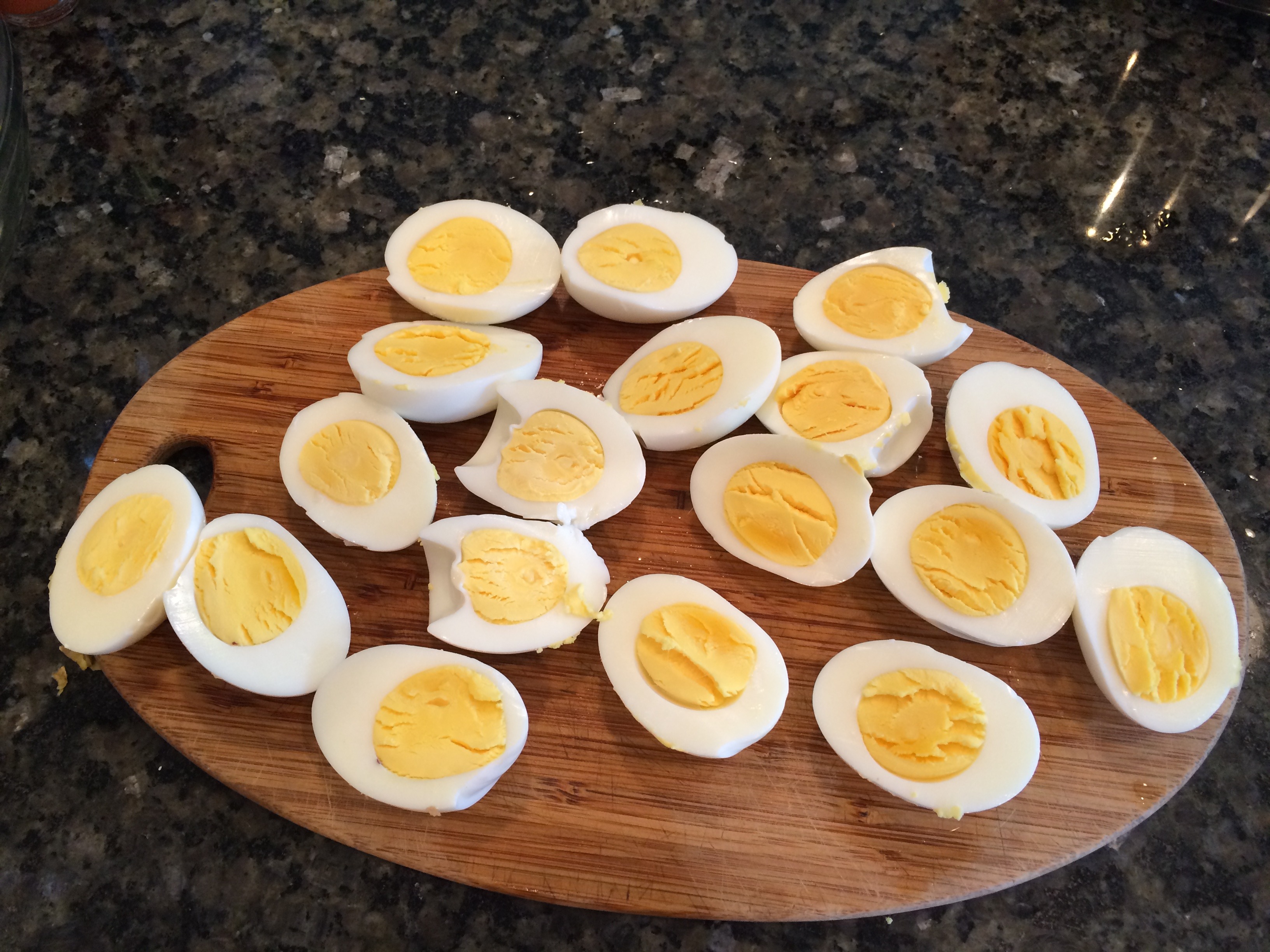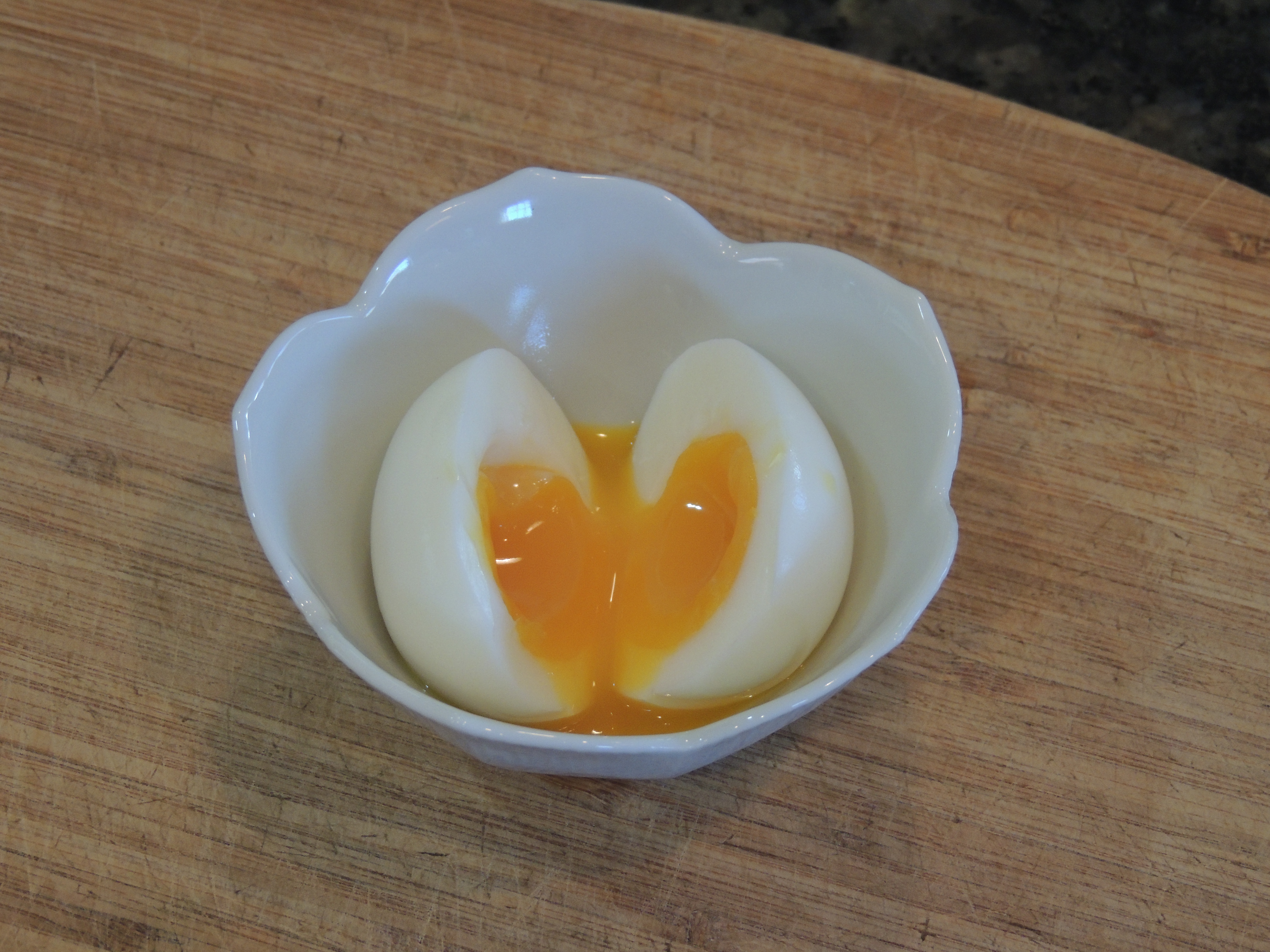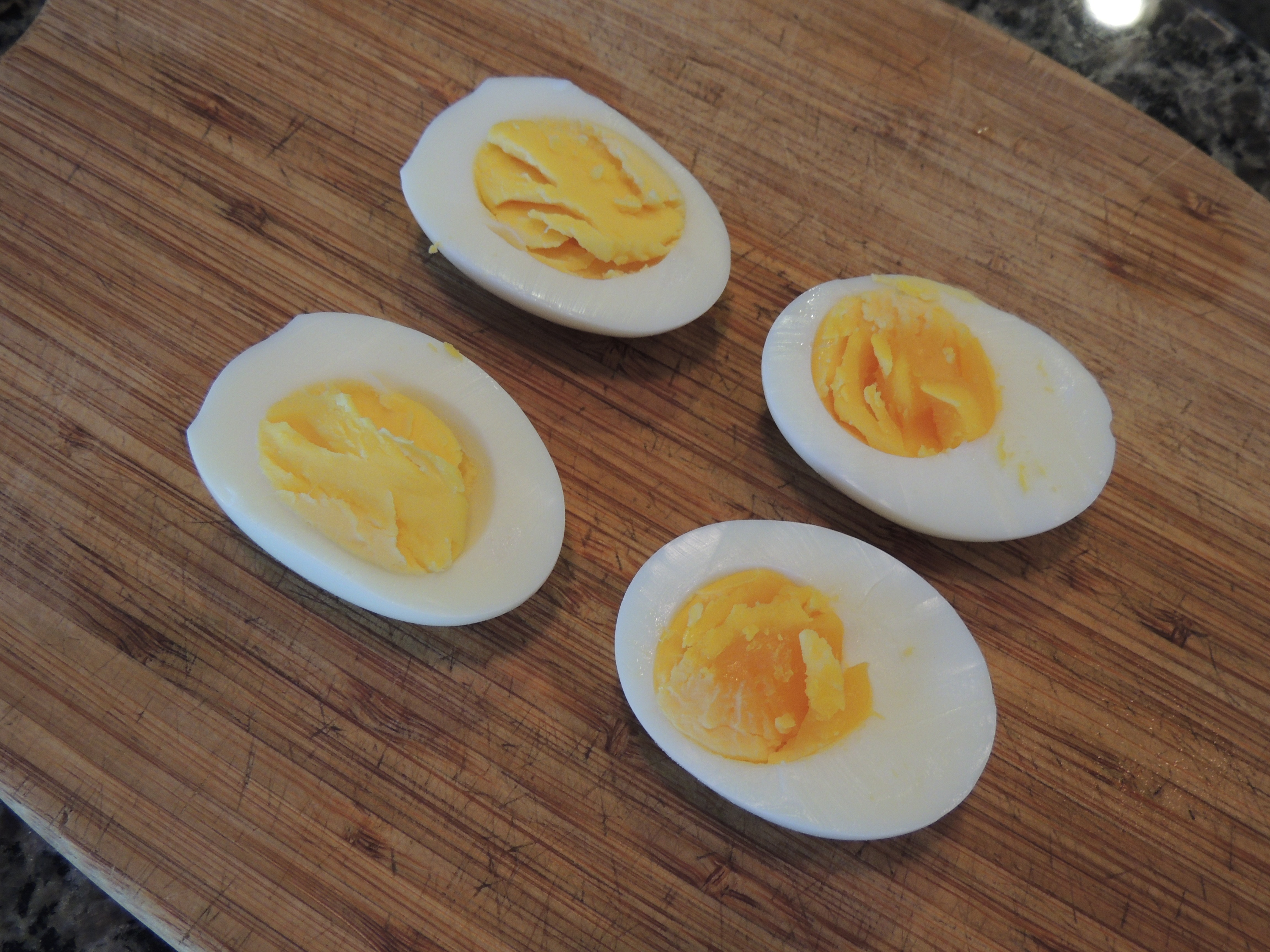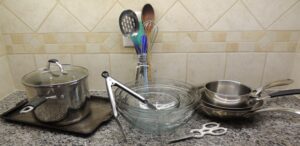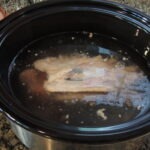“Boiled eggs are very easy to make, but not so easy to cook perfectly every time. I ate a lot of boiled eggs trying to perfect these instructions! Unlike some people, I prefer to bring the water to a boil before placing the eggs in it. That way I can more accurately time how long they’ve been boiling. However, there are other variables that still might require minor adjustments, like the size of eggs and how many are in the pan. We used large eggs, and cooked four to six, in a 4-quart saucepan. We used our 1-quart saucepan for one to three eggs.” ~ Bobbi
Recipes using hard-boiled eggs include: Deviled Eggs, Egg Salad, Red Potato Salad, Asparagus with Eggs Mimosa
- Fill a saucepan with at least three inches of water and a pinch of salt.
- Cover the pan and bring water to a boil over high to medium-high heat. (It takes longer on a gas stovetop than an electric one.)
- Once water is boiling, lower heat to medium. Place egg in a spoon, then gently lower into boiling water. Repeat with each egg. Make sure water covers the eggs, but is not so close to the top of the pan that it will boil over.
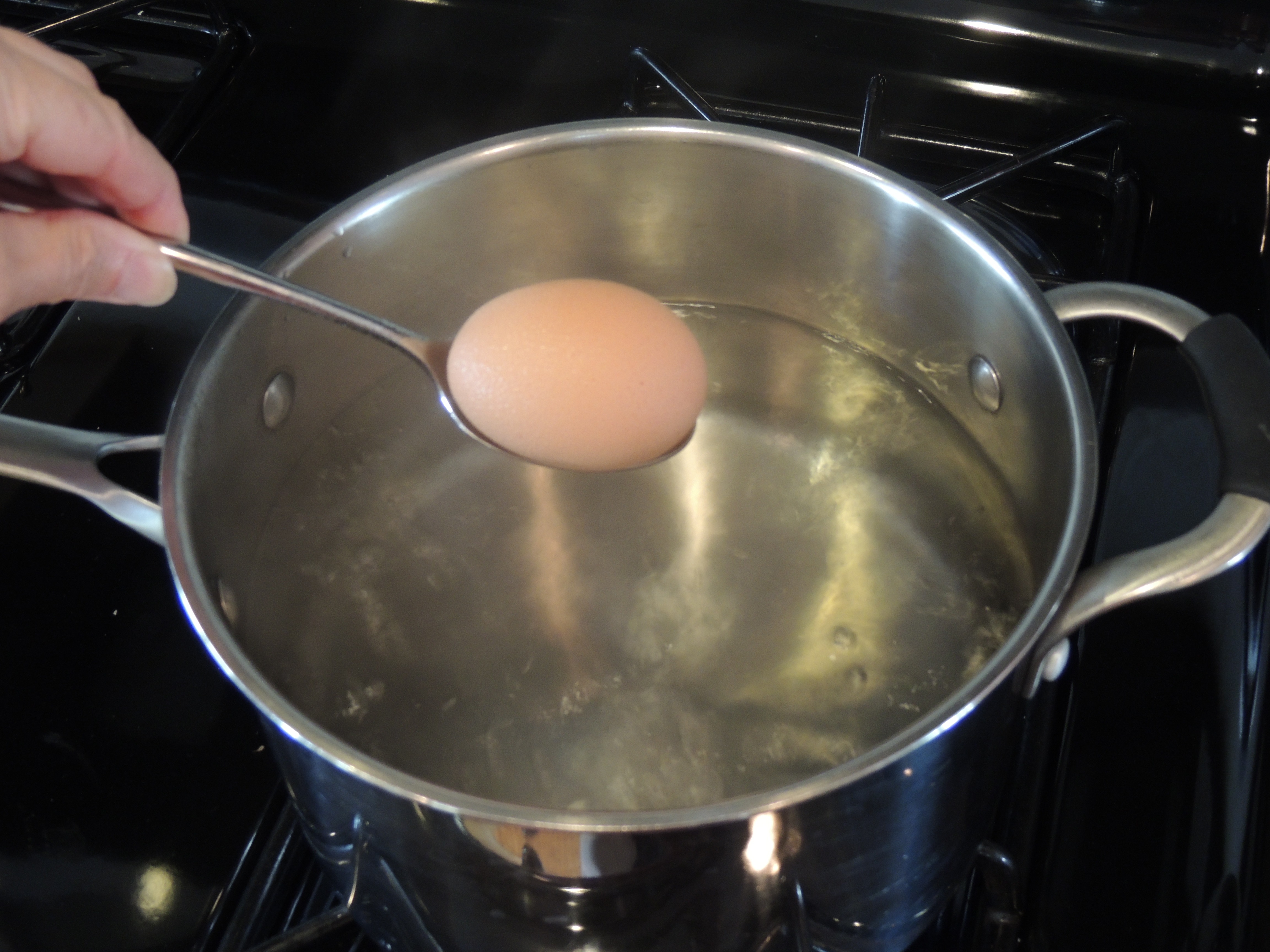
- Immediately set timer to 5 minutes. Bring to and maintain a gentle boil, uncovered. Turn heat to medium-low, if needed to keep the water at a gentle boil.
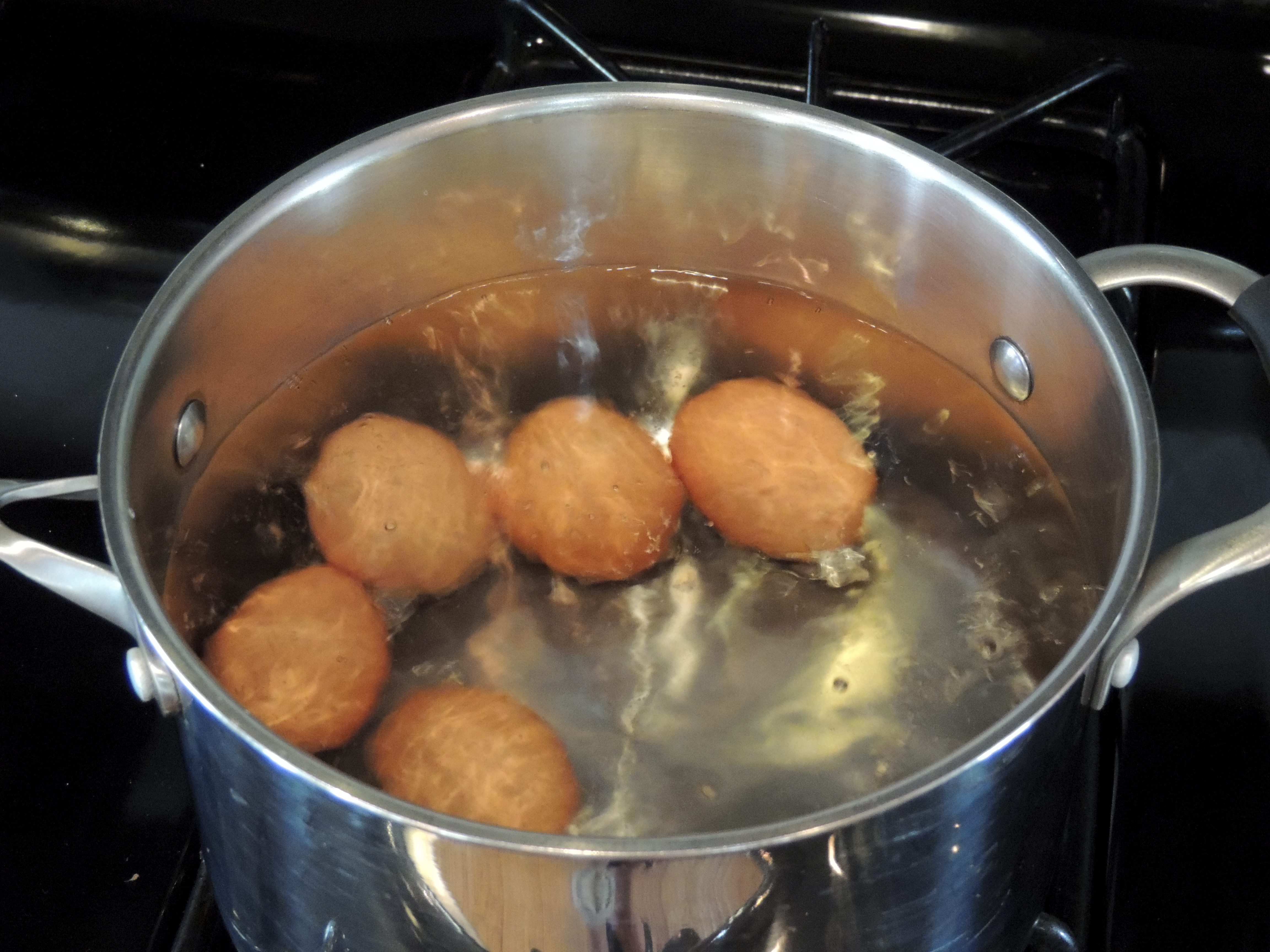
- After 5 minutes, remove pan from heat. (If water does not come to a boil within 5 minutes, add 1 minute to the standing times specified below for medium and hard-boiled eggs.)
- Cover pan and use the following guide to determine how long to leave eggs in the hot water, depending on what type of egg you want:
- Soft boiled (white is cooked but yolk is runny): Remove eggs from water right away and let stand 1 minute before rinsing.
- Medium boiled (yolk is not quite done all the way through and is still dark yellow): Let eggs stand in hot water, covered, for 4 to 5 minutes.
- Hard boiled (yolk is cooked through, but there’s no gray coating): Let eggs stand in hot water, covered, for 10 to 11 minutes. (The gray coating on the outside of the yolk is fine to eat, just not pretty. It indicates the eggs were overcooked.)
NOTE: The exact timing could vary slightly, depending on the size of egg, size of pan, how many eggs are in the pan, altitude, etc. Experiment and adjust, if needed.
- When the appropriate time is up, rinse with cold water for 30 seconds, or place in a bowl of ice cold water.
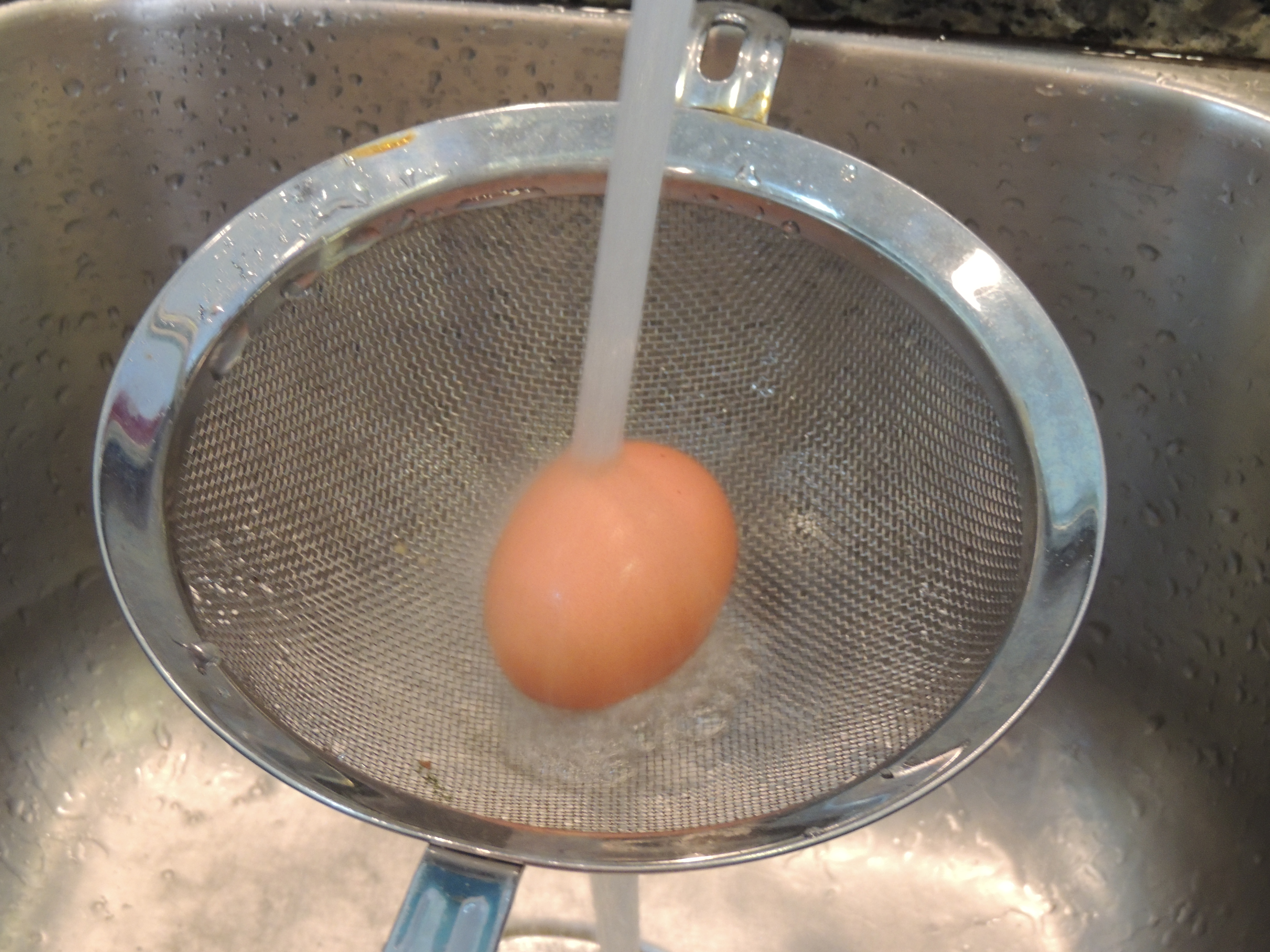
Tip:
Eggs are easier to peel shortly after rinsing and while still warm. If the shell does not come off easily, hold egg under a thin stream of water while peeling it.
Soft-Boiled Egg:
Medium-(on right) and Hard-(on left) Boiled Eggs:
